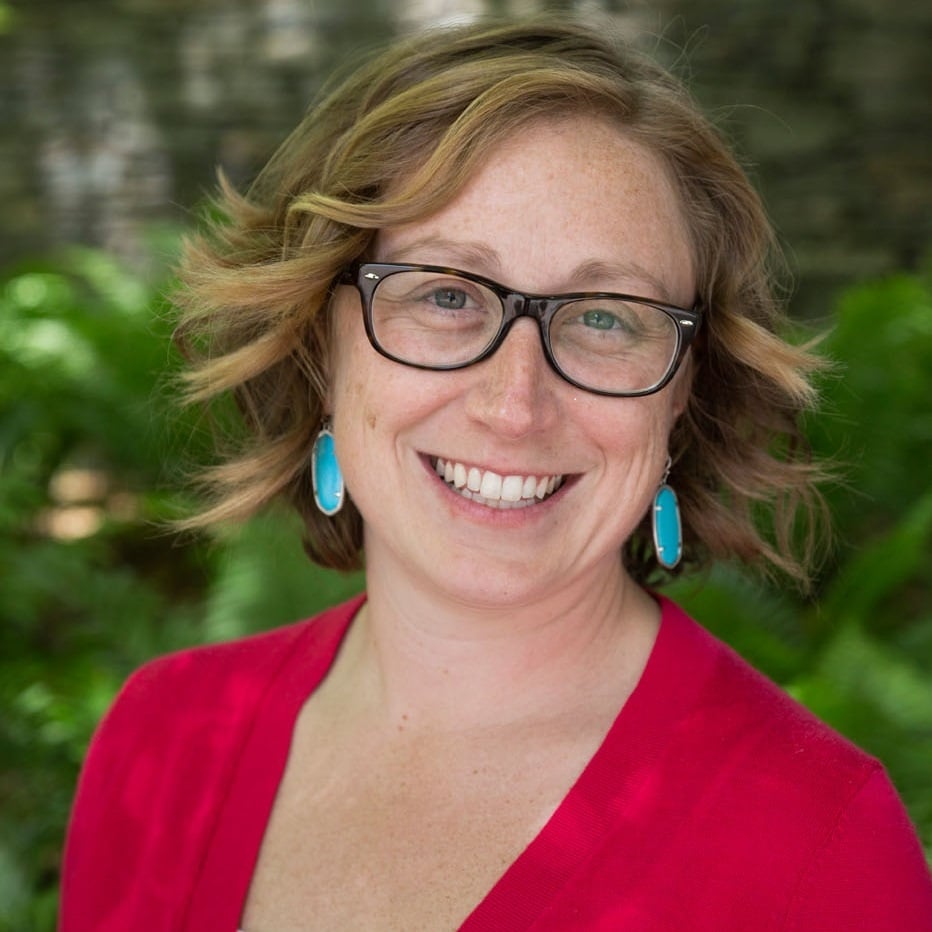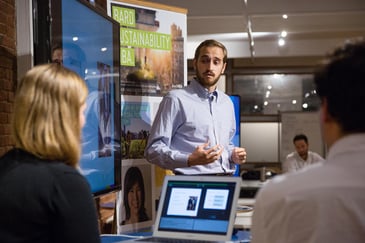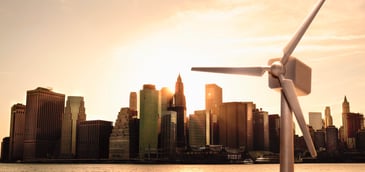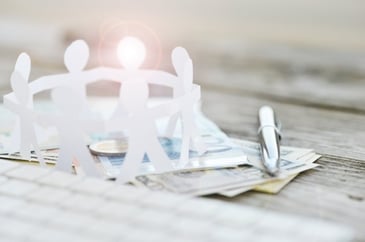How Getting a Business Degree Could Combat Climate Change (No, Really)

If you care about the environment and the impending climate crisis, you’re probably looking for a way to do more. Maybe, for you, that means getting involved with local nonprofits in your spare time, prioritizing advocacy efforts, or choosing an electric vehicle.
But if you’ve been thinking about a full-time job devoted to climate, your first inclination might be toward environmental policy—creating rules that rein in unethical businesses. After all, governments must play a role in championing sustainable development if we intend for future generations to live their lives on a healthy planet.
Or, maybe you’ve considered environmental education—strengthening the relationships between people of all ages and nature. Careers in this realm take on many forms: from private schools and NGO’s to land management agencies to conservation organizations, museums, and environmental education centers.
What you probably haven’t considered in your journey to a more sustainable future is getting a business degree. And who would blame you? Businesses are some of the biggest contributors to climate change. In pursuit of short-term gains, big business does what it can to maximize shareholder value through wage cuts and outsourcing while lobbying against environmental regulations that would prohibit them from depleting natural resources however they’d like. And, to top it all off, some of the companies that pollute the most are the very same companies that greenwash, so the public is none the wiser.
But that’s business as usual. There’s another option—sustainable business.
Request more info about our sustainable business degree>>
The sustainable business model
Running a sustainable business means shifting away from the profit-above-all mentality and embracing the triple bottom line. In this model, businesses prioritize people, the planet, and profit equally. This approach leads to long-term organizational stability in general.
It’s easy to concentrate on the businesses that focus solely on short-term gains and profits because that’s what we’re more used to seeing in the media (Boeing, for example). But there are plenty of companies becoming more sustainable by the day. It’s a movement that’s gaining momentum because consumers demand it. We’re fast approaching a new paradigm where sustainability will be considered a baseline for purchase.
An article titled Research: Consumers’ Sustainability Demands are Rising in the Harvard Business Review states: “Our research suggests we’re on the brink of a major shift in consumption patterns, where truly sustainable brands—those that make good on their promises to people and the planet—will seize the advantage from brands that make flimsy claims or that have not invested sufficiently in sustainability.”
Changing the narrative around getting a business degree
At Bard, one of the biggest refrains we hear from our MBA in Sustainability students is, “I didn’t think I wanted an MBA.”
But why is that? We wanted to discover what perceptions might be preventing people from considering a sustainable business degree, so we went straight to the source: our alumni. And we found a few overarching themes and/or questions that we’d like to address:
The idea that MBA focus areas don’t align with sustainability goals
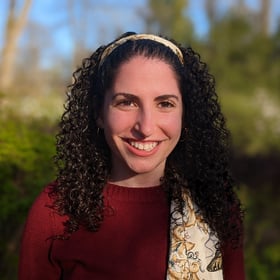 That may be true for other MBAs, but not for Bard.
That may be true for other MBAs, but not for Bard.
Michelle Aboodi, MBA ‘21 was working at CNN in business operations and felt unfulfilled and restless. She applied to some jobs within the sustainability and wellness field but wasn’t hearing back, and entry-level jobs were hard to find. That didn’t deter her from a sustainability career; she knew she needed more experience to get there.
The first time she heard about the Bard MBA in Sustainability was from her manager, who was completing her degree.
“I thought MBAs were very finance and accounting focused, exclusively. I wasn’t confident in my math/numbers skillset, so I thought an MBA wasn’t for me.
But realizing that there were programs that incorporated business and sustainability was ideal to me after working in a corporate America for a few years. Growing more confident in my abilities at CNN and checking out a few Masters programs made me understand what I could get from an MBA.”
Today, Michelle works at Converse (a division of Nike, Inc.) as the Lead Global Sustainable Analytics Manager. She credits the MBA in Sustainability with making her believe in herself and opening her mind to ways she can use sustainability in a business setting. Her day-to-day work involves developing and implementing corporate sustainability strategy, analyzing sustainability data for decision-making, and sustainability governance and cross-functional collaboration across the business.
“Can I get an MBA without a business degree?”
The answer is yes, of course. But the bigger question is whether your experience will be valued. (At Bard, that’s a yes, too.)
Emma Jenkins-Long, MBA ‘21 is now the VP of ESG at Deutsche Bank. But back before she started at Bard in 2017, she was in her eighth year as a public school teacher. She taught special education science and math at a middle school. The school had some sustainability built into the curriculum.
“I was thinking about my career progression, but I wasn’t sure of my options since I was not interested in curriculum design or administration. I figured an MBA might provide a well-rounded program of content to open up many opportunities. At this time, the IPCC first reported on the need for action before 2030. I was teaching a mini-lesson on the report and was taken aback by the dejected attitude of my students who felt powerless and hopeless about their future. After that, I was compelled to pursue a career in sustainability to try to make more of an impact on this issue that would affect generations to come.”
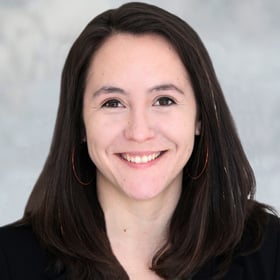 Though Emma also wondered whether it was possible to find an MBA that centered on sustainability, she was also concerned that she might not be taken seriously or that her background in education would be respected. Would she be able to enter a grad program where she needed to learn both sustainability and business or was she supposed to come in with a foundation in business already?
Though Emma also wondered whether it was possible to find an MBA that centered on sustainability, she was also concerned that she might not be taken seriously or that her background in education would be respected. Would she be able to enter a grad program where she needed to learn both sustainability and business or was she supposed to come in with a foundation in business already?
Emma quickly realized that wasn’t the case. “Discovering the Bard MBA felt like fate! It seemed genuinely impact-first, and I appreciated the small group. Getting to visit a residency was helpful to witness the types of discussions.”
Discussions she could contribute to because her perspective was welcomed. For Emma, the Bard MBA in Sustainability transformed her life. Some of her favorite parts were the ability to tailor the experience to her specific content interests, the tight-knit network very active in supporting each other, and the real-world client projects they did to gain resume experience.
“The cons of capitalism make it impossible to work within the system."
‘There are a variety of ways to fight climate change, and we need to take advantage of every opportunity—including business.
Lindsey Strange, MBA ‘19 was ten years into a career in apparel (spanning costume design, technical design, and teaching) when she started to search for a way to reconcile her love of design and clothes with the knowledge that the clothing industry is a significant contributor to environmental and human harm. Though she was an avid bicycle commuter, trying to live a low-waste lifestyle, she wasn’t sure she was making much of an impact.
She started researching sustainable design programs but came to see that most of the sustainable designs and innovations that inspired her didn’t actually go very far, being small-scale or stuck in the pilot phase. And while she loved the creative side of design, Lindsey realized she didn’t want to keep making more stuff. Instead, she wanted to learn how to translate between powerful decision-makers and creatives to make a bigger impact. One day, it dawned on her that an MBA could help her do that.
“The younger, artistic, idealistic, anti-establishment design student me would be incredulous that I was thinking about an MBA. I thought folks who got business degrees had completely different priorities. I looked down my nose at them as prioritizing money and power over environmental values and community. The older me simultaneously doubted a designer would be taken seriously. I assumed it would be super competitive and that I'd have to fight to make a case for sustainability or do all the application of business acumen to sustainability myself.”
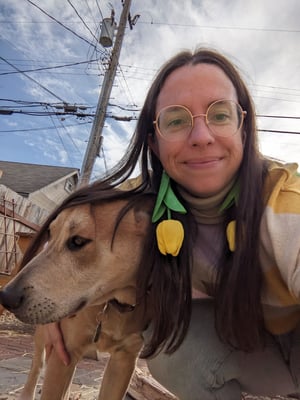 At Bard, Lindsey found community. When she visited, she loved the energy of the program and the sense of community she could sense from all her interactions with alums, current students, and administrators. “I really wanted to spend a few years surrounded by folks who already valued sustainability, so I didn’t have to spend two years defending myself. I knew that I would be able to dive in, be challenged, and just learn.”
At Bard, Lindsey found community. When she visited, she loved the energy of the program and the sense of community she could sense from all her interactions with alums, current students, and administrators. “I really wanted to spend a few years surrounded by folks who already valued sustainability, so I didn’t have to spend two years defending myself. I knew that I would be able to dive in, be challenged, and just learn.”
Plus, the hybrid format of the program was perfect; she didn’t have to move her family, and she could keep working at the same time.
Nowadays, Lindsey works at Target as the Designer of Circular Capabilities and Acumen, a “weirdly specific” role that blends her design, teaching, and MBA experience (her words—not ours). She’s focused specifically on design for the circular economy, and she works across product categories ranging from apparel to home goods to food and beverage. She uses what she learned at Bard every day.
Get a sustainable business degree at Bard
Want an MBA where sustainability is baked in, not bolted on? Are you interested in learning how to frame sustainability opportunities as business opportunities, investing in climate change solutions, using compelling storytelling, employing change management principles, and more?
To learn more about Bard’s MBA in Sustainability – and some of its areas of focus, including sustainability consulting, impact finance, and circular economy – download our guide: the MBA of the Future.

